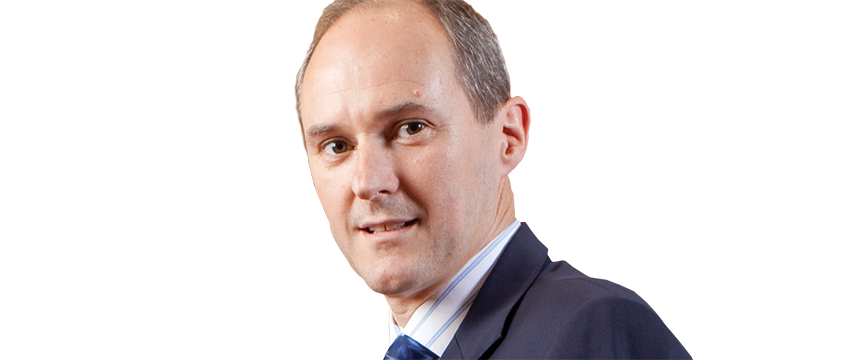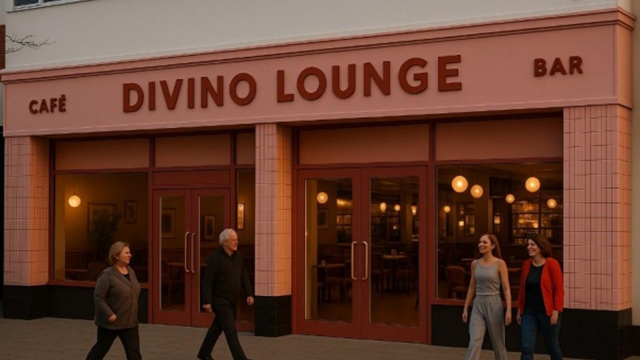COMMENT: Ninety-eight years ago, a group of entrepreneurs paid £7m for 25,000 broken-down military supply vehicles and 600 acres of farm land just west of London, writes David Sleath. The idea was to build workshops to repair the vehicles and then sell them into the emerging automotive market. Once the job was done, the empty buildings were rented out to local businesses and so the Slough Trading Estate was born. It subsequently became Europe’s largest industrial park and the backbone of what is now SEGRO.
Industrial property has seen much change since then. Today, manufacturing activities make up just 18% of our customer base – and most of that is food or confectionery production for London and south-east England. Modern industrial properties house a vast array of activities – from internet retailers to data centres and parcel delivery hubs, as well as film studios and media production companies.
As a business, our purpose is to create the space that enables extraordinary things to happen – we create the physical environment to enable our customers to provide an ever-widening range of products and services to consumers and businesses alike. I often say to people who don’t know us that almost certainly everyone we meet will have worn, bought or consumed something that has passed through a SEGRO warehouse.
Our portfolio now represents and reflects a diverse, modern economy and the consumers that we and our customers serve.
The problem is that our workforce doesn’t, yet. Although 45% of our employees are women, only 26% of our senior leadership team are women and, right now, only two of our board directors are women.
I’m not satisfied with this and it’s no excuse to say we are typical of the property industry, true though it is. The reality is that we still have a very white, middle class, male-dominated industry. According to RICS, only 13% of chartered surveyors are female and less than 2% are from black, Asian or other minority ethnic backgrounds.
The Presidents Club Dinner demonstrated just how un-diverse our industry is today. And events such as MIPIM often draw attention for the wrong reasons, too. But, as an industry, I believe we have come a long way from the image portrayed. The people I see and interact with are a much more enlightened group, even though we are a long way from where we need to be.
At SEGRO, we are active supporters of Real Estate Balance, Pathways to Property and the RICS Inclusive Employer Quality Mark initiative. I have personally signed up to the 30% Club, which aims to have women making up 30% of the people on FTSE100 boards and management teams. Unconscious-bias training has been provided to all senior managers at SEGRO and we have other individually small actions and initiatives that, collectively, will help us to improve our own diversity and, with it, our overall business performance.
I know that SEGRO is not alone in these efforts – many companies have rallied round the BPF’s Principles to support a diverse and inclusive real estate industry. (The BPF’s Principles were launched at my BPF President’s Lunch last May and they are a key priority for my successor, Paul Brundage.)
But the truth is, despite all the great initiatives, we still have a long way to go.
I think BPF CEO Melanie Leech put it very succinctly when she said, “We want to create an environment where such behaviours [as reported at the Presidents Club dinner] cannot happen, and where individuals not seen to be holding themselves to the highest standards of respect for others are the ones who are – and feel – unwelcome and out of place.”
That’s exactly what we have to aspire to. So I say to all of us who work within the real estate world that we must use the [unwanted] publicity of the past week or so to galvanise us into action – to make a step change in how we address the fundamental lack of diversity and create a truly inclusive industry, reflective of our broader society.
Furthermore, we must be totally committed to recruiting from “non-traditional” property backgrounds. We must ensure that ALL our colleagues, at every level, receive the training and support that best maximises their individual talents. We must create cultures that are truly inclusive. We must educate where needed – taking time at moments such as this to address issues and make sure we learn from them.
We must consider the small actions, too – one of the Real Estate Balance’s 10 CEO commitments that I signed up for is to ensure that I will not speak at male-only speaker events – and, finally, we must do more to promote the progress we are making as well as the broader force for good that our industry is, and can be, when it is at its best.
These things will take time but we should not be put off by this. Each one of us – individuals and corporate citizens – should step up and ensure that we make this a watershed moment and deliver the permanent, positive change the industry needs.
David Sleath is chief executive of SEGRO











